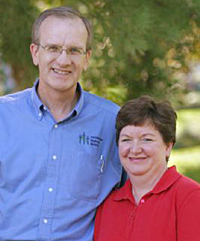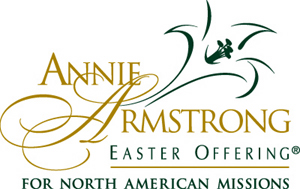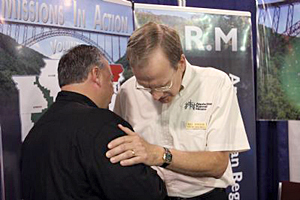It’s another early morning for Bill Barker in the Appalachian Mountains of West Virginia. He leaves home earlier than usual in his brown Toyota minivan, which suddenly tops a mountain crest. He pulls off the road to talk to God.
 Bill and Arlene Barker
Bill and Arlene Barker“I look out across the mountains as the morning mist and fog begin to lift,” he said. “You can still see the green valleys below filled with fog. It’s such a beautiful sight. I stand there and pray, ‘Lord, please send revival and fill these mountains again with your glory even as you fill these valleys with the morning mist.'”
Born in Boone County, W.Va., Barker, a North American Mission Board missionary, grew up in the state’s rugged coal mining country but left in 1969 with plans to never return. But it was a higher calling, God himself, who told Barker seven years ago that he should “go home” to West Virginia after a 32-year absence.
As a native Appalachian, Barker believes he is uniquely qualified for his current post, director of Appalachian Regional Ministry. ARM is a partnership ministry of the North American Mission Board, the Woman’s Missionary Union and 11 state conventions.
“I’m uniquely qualified for this work because not only am I a native of Appalachia, but over these past 32 years, God has been preparing me to come back and minister in West Virginia – first as a bi-vocational pastor working out in the secular market as a marketing rep for the Coca-Cola Bottling Company, in management for a grocery firm and later in the insurance business,” he said. “Through all this, God was preparing me for what I’m doing today.”

As head of Appalachian Regional Ministry – based in Hurricane, W.Va. – he directs a Southern Baptist organization that responds to the physical and spiritual needs of the people of Appalachia. ARM’s main role is to share Christ with the people of Appalachia.
Barker is one of more than 5,300 missionaries in the United States, Canada and their territories supported by the Annie Armstrong Easter Offering for North American Missions. He’s one of eight Southern Baptist missionaries highlighted as part of the annual Week of Prayer, March 4-11, 2007. The 2007 Annie Armstrong Easter Offering’s goal is $57 million.
Appalachia is a very diverse region of the United States, Barker said.
The north Georgia mountains – where the Appalachian Mountains begin – include people who are transplants from Florida, south Georgia and Alabama. But as you move into the coal field areas of central and northern Appalachia, you come across people whose families have lived there for generations. They’re isolated by the geography, mountainous terrain and profound poverty of the area, according to Barker.
“Our people here are very good people,” Barker said. “They’re quiet, loving and kind people. Religion is still a big part of their lives. It’s mountain religion. They love to sing, and they love to make music. They are a very artistic people. They love to draw, carve and create with their hands.”
 Bill Barker, right, NAMB missionary and head of Appalachian Regional Ministry, prays with Michael Harrison.
Bill Barker, right, NAMB missionary and head of Appalachian Regional Ministry, prays with Michael Harrison.Working to share Jesus in Appalachia means ministering to millions of people without Christ and to the poorest of America’s poor.
“Within Appalachia, we have 37 of the 100 poorest counties in America,” Barker said. “Twenty-nine of those counties exist in Eastern Kentucky, where 38 percent of adults lack either a high school diploma or a GED equivalent.”
Calling the lostness of Appalachia “overwhelming,” Barker said, “Within the 10-state region I cover, there are 13 million-plus unchurched men, women, boys and girls.” And although Appalachia has churches around every bend in every little mountain hamlet, overall church attendance is down, he said. Many churches have closed.
“Seventy percent of the Appalachian Mountain people are unchurched. In West Virginia, there’s one Southern Baptist church for every 7,200 unchurched persons. If I go over into Portsmouth, Ohio, I’m in an area which has only one Southern Baptist church for every 16,000 unchurched persons.
“If I drive up to the Pittsburgh area, I’m in an area with more unchurched persons than in the entire state of South Carolina or Kentucky.”
Barker said he recruits volunteers to minister on several different levels.
“On one hand, we do ministry that involves cultivation evangelism,” he explained. “Volunteers come in and hold backyard Bible clubs, run Vacation Bible Schools, distribute the ‘Jesus’ video, conduct block parties and a host of other things.
“Sometimes we work with our missionaries who are involved in resort ministries. Or maybe we work with a church planter to help plant new churches. But our ultimate goal is to reach people with the gospel of Jesus Christ.”